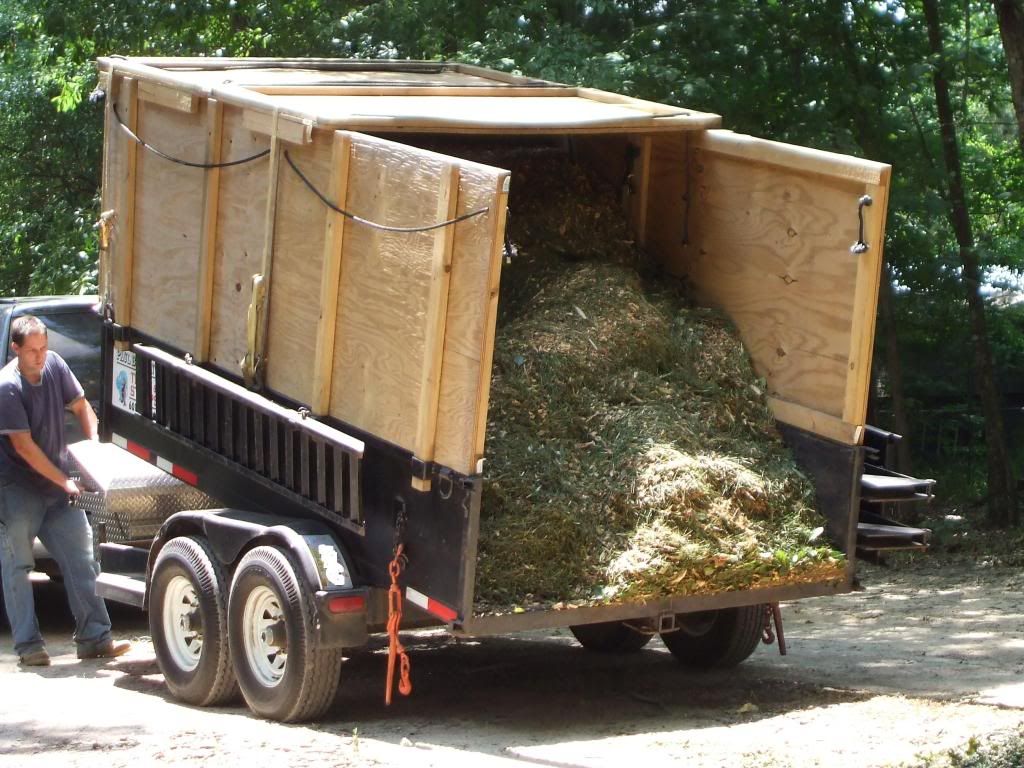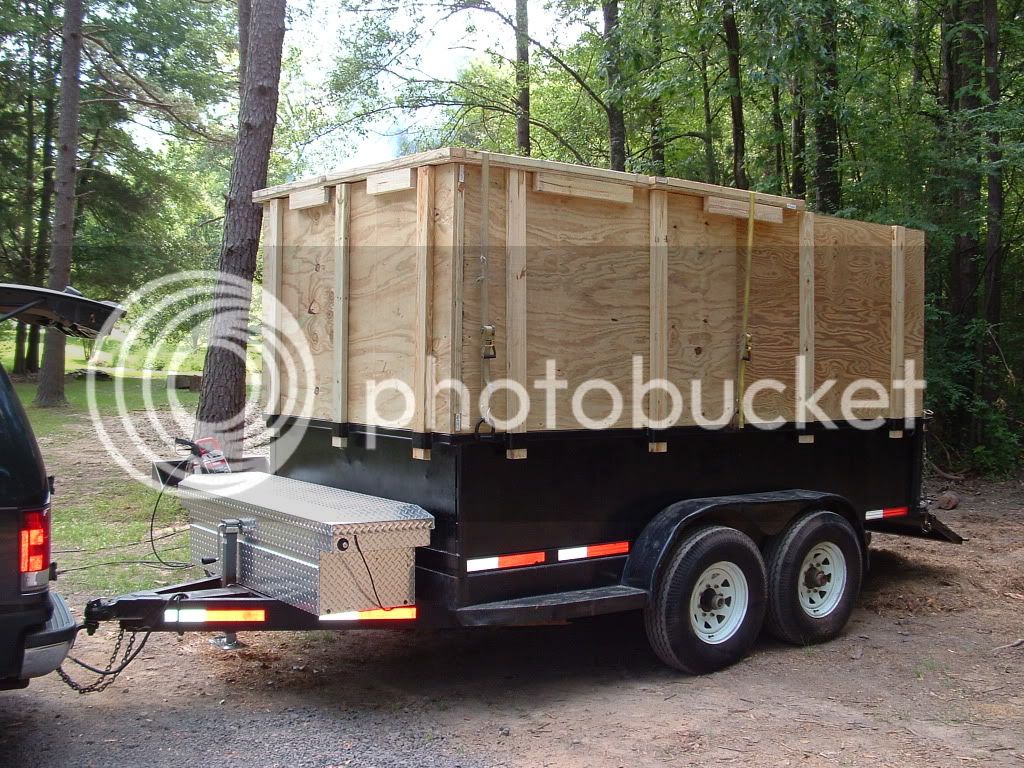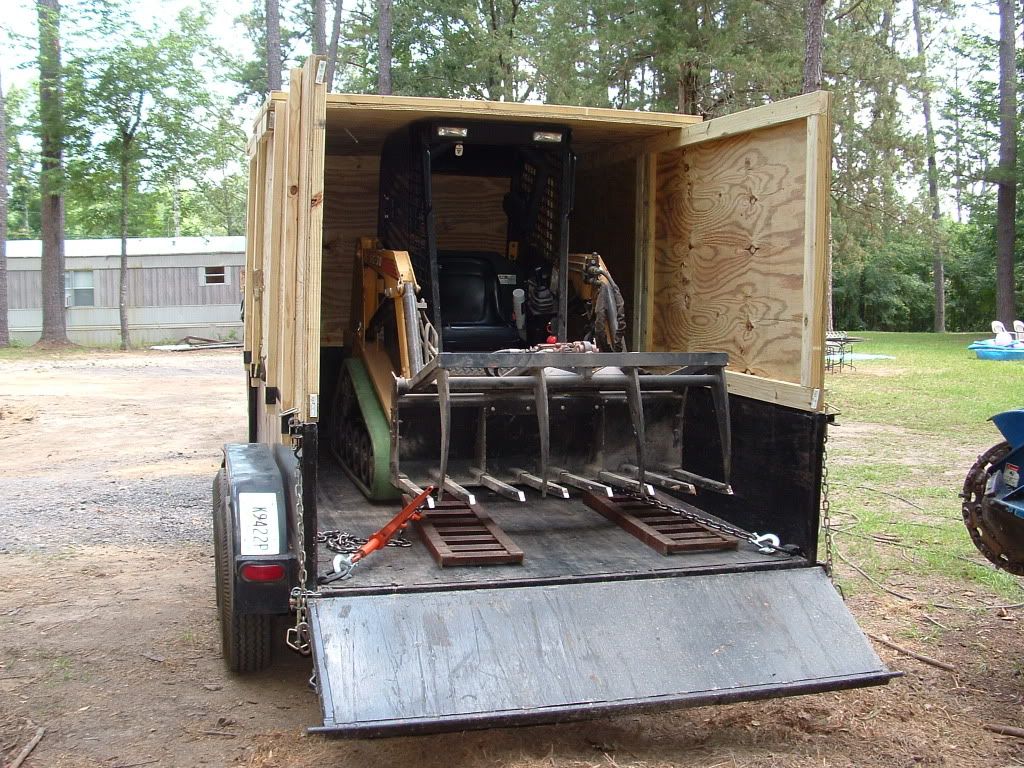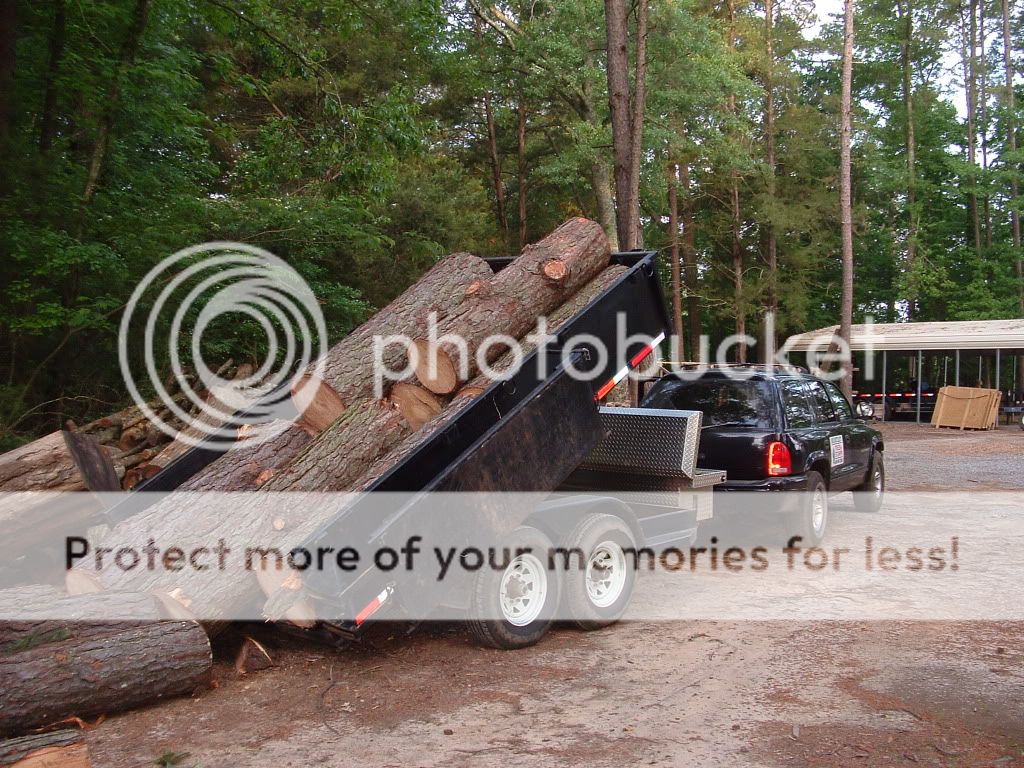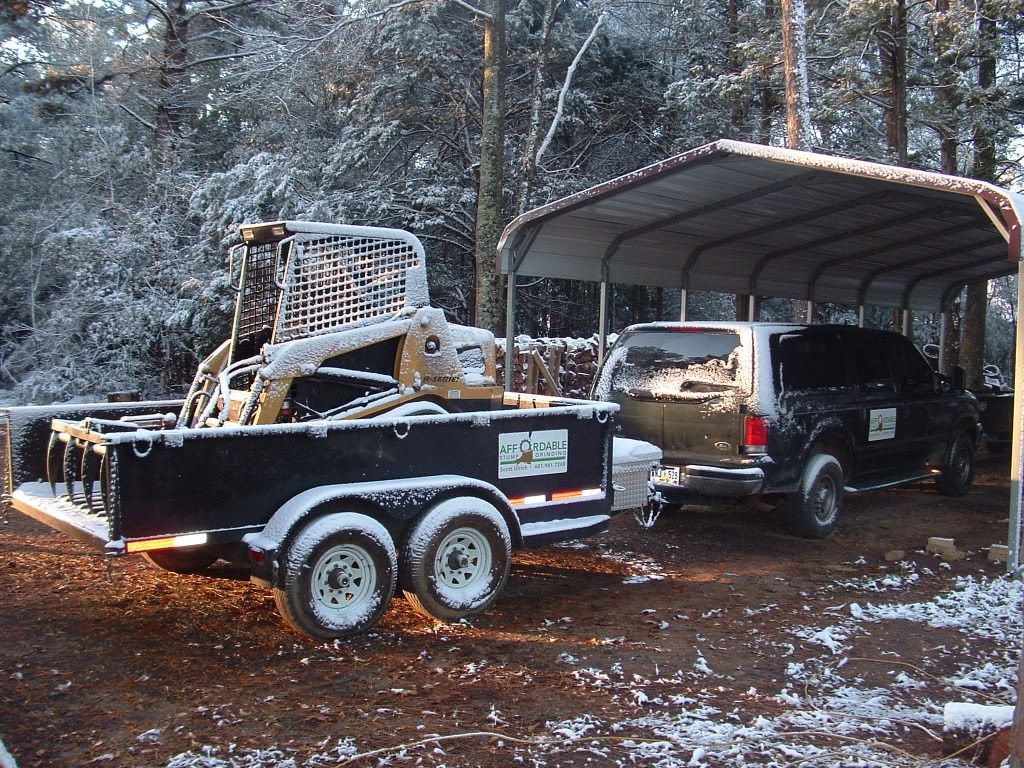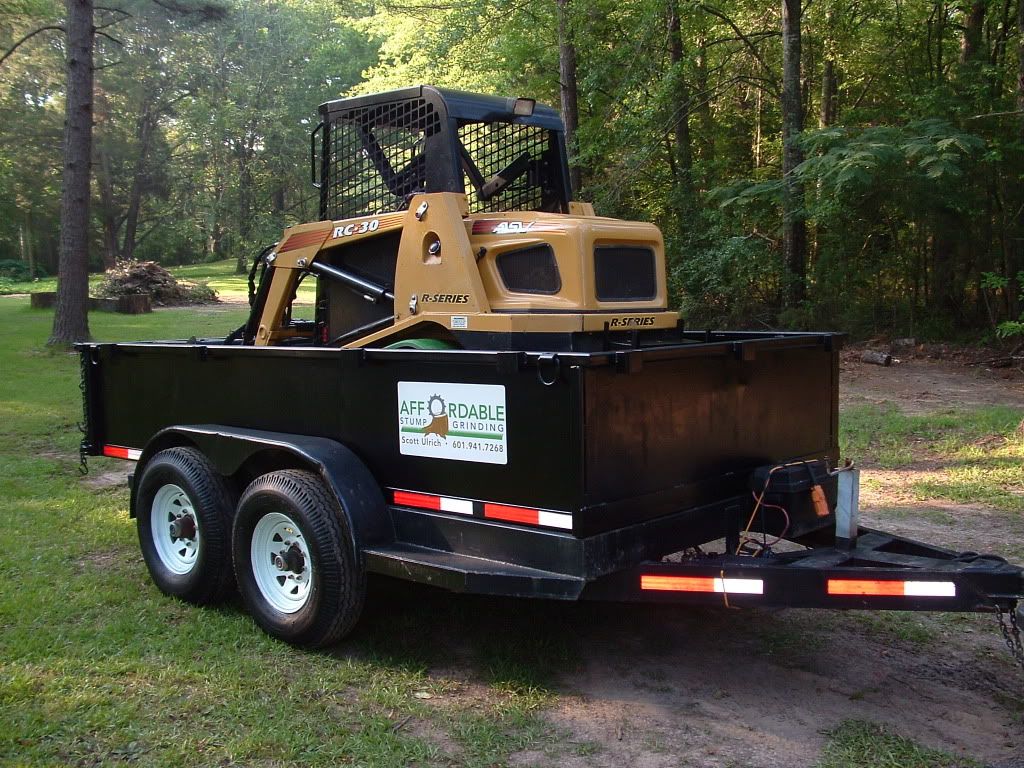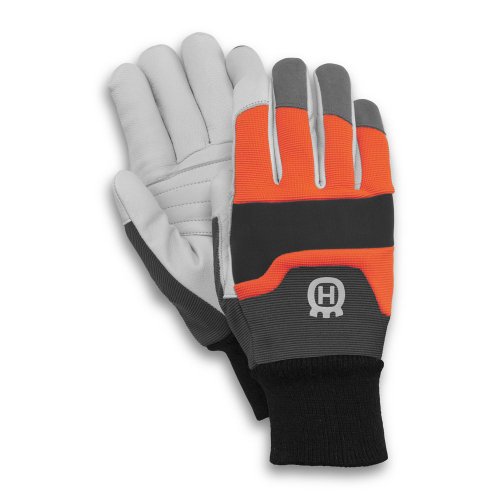For years I had a 3 axle dump trailer with a box that was 35 yards (8' x 16' x 6'). I never worried about capacity, but I have overloaded it in respect to the entire combination and the tow vehicle. What you have to consider also is braking capacity. that extra axle never left me for want of brakes when it was loaded heavily, however, the gross combined vehicle weight rating of your pulling truck is to be reckoned with, as surpassing that on a regular basis does put stresses on parts of the vehicle that it wasn't designed to have. My previous one ton ford that towed that trailer and many more saw things like the axles coming loose from the shackles because they were designed for less constant stress. Likewise the springs were not strong enough, and often caused "axle wrap up" on take off from dead stop.
The angle of the trailer was plenty steep, and you couldn't walk up it when fully extended without slipping down. However, it was weight distributed evenly and always had a firm footing. Many smaller trailers and even trucks lose their stable footing when loads are heavy, unevenly distributed, and then fully extended. I've seen several dump trucks laid over at the dump while emptying torn off roofing loads. There's a bit of righting moment if you will, and a little soft ground can add to the mix. The higher you go, the more risky it becomes. I'll also say my rear axle was bent a bit from that. One think I learned was that any obstruction was a big risk. I painted my bed all the time to make it smoother, and also had poly ethylene boards at any choke points at the end so there was nothing to catch on.
Someone else mentioned the CDL, and they are exactly right. As soon as you cross that threshold, you are upping the ante not just in licensing terms, but many states also have their own bureaucracies that deal with state commercial vehicles. That drivers physical can be a problem for some of us. We sure have that here, and when you meet the limits for it, you need to register with the Cal Trans department, get inspected every two years, stop at the scales every time, enter the pull notice program for drug testing, display your numbers on the truck or trailer, and pay weight fees for commercial registration. I'm probably leaving out a few.





